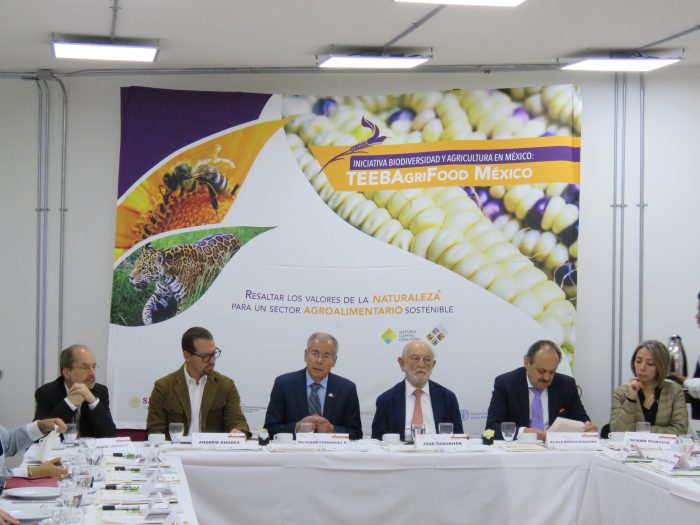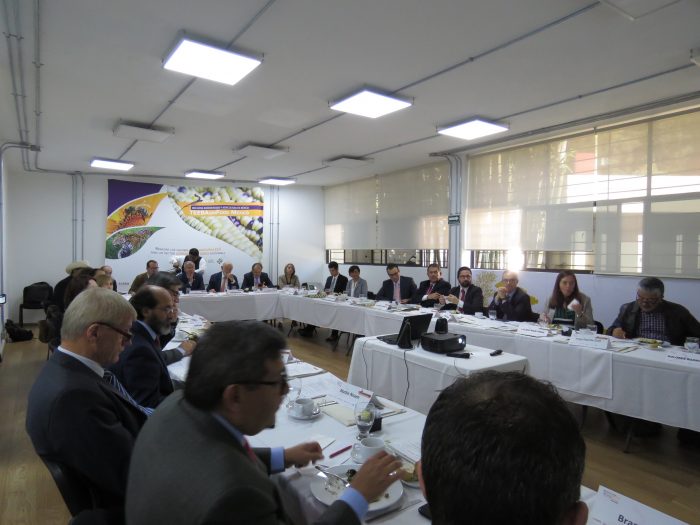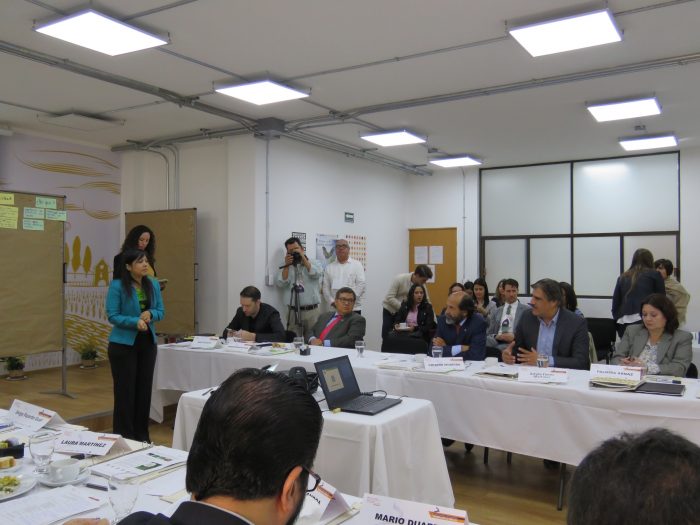The Biodiversity and Agriculture Initiative in Mexico is presented to highlight the value of nature for the agrifood sector. Actors from different sectors contributed to identifying the country’s priorities regarding the valuation of ecosystem services for agrifood production.

The Biodiversity and Agriculture Initiative in Mexico: Highlighting the Value of Nature for the Agrifood Sector
In a high-level dialogue with broad participation from more than 30 representatives of various institutions, country priorities were identified for the implementation of the Biodiversity and Agriculture in Mexico (TEEBAgriFood) initiative.
The dialogue began with representatives speaking from the Ministry of Agriculture and Rural Development (SADER), the Ministry of the Environment and Natural Resources (SEMARNAT), the European Union and the Deutsche Gesellschaft für Internationale Zusammenarbeit (GIZ) GmbH. They stressed the opportune timing of the workshop for helping to develop the new government’s national development plan in which the joint work between the agricultural and environmental sector should be promoted. It was highlighted how the increase in food demand has put pressure on the demand for ecosystem services in recent decades. Participants mentioned that projects like this require interinstitutional collaboration and should consider the traditional knowledge associated with agricultural production in Mexico. They explained that although a theoretical basis for initiatives like this already exist, actions must be taken that support decision making and planning for the achievement of concrete results.

The elements of the Biodiversity and Agriculture initiative in Mexico were presented, as well as the projects involved and their roles. The TEEBAgriFood initiative is a global effort focused on making the value of nature visible. Its objective is to recognize, demonstrate and mainstream the values of biodiversity and ecosystem services, in monetary and non-monetary terms, in the decision making of key public and private sector actors at all levels. The initiative joins the efforts of two projects being implemented in the country: “The Economics of Ecosystems and Biodiversity (TEEB): Promoting a Sustainable Agriculture and Food Sector” (European Union-UN Environment) and “Mainstreaming Biodiversity into the Mexican Agricultural Sector” (IKI IBA-GIZ-UN Environment and FAO).
Next, the participating institutions discussed their views on country priorities and how they connect to the Biodiversity and Agriculture in Mexico initiative. Priority approaches can be summarized in four areas: use of existing experiences and initiatives; the importance of interinstitutional and intersectoral coordination; the basis of legislation and for decision making with robust science and methodologies; and communication and dissemination.

Finally, the workplan for the initiative and the responsibilities of the monitoring committee were presented. The participating institutions appointed a representative to participate in the committee. After this dialogue, a technical workshop was held to identify other key actors to include in the initiative, as well as inputs and thematic and territorial priorities that define the study’s starting points.
This event was held on February 20 and 21, 2019 at the facilities of the SADER’s Center for the Integration of Biodiversity in Mexico City.
